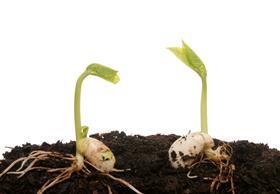
ISSD Africa, a community of practice on seed sector development hosted by Wageningen University & Research, is looking for new investment partners to finance nine well-defined action topics in Africa, ranging from seed, agrobiodiversity and climate change, to gender and seed systems.
Currently, as much as 50 per cent of the yield gap in Africa is the result of the use of poor quality seed and varieties, the group said. Increased access and use of quality seed will contribute to increased agricultural productivity and help fight hunger, malnutrition and climate change.
Marja Thijssen of Wageningen Centre for Development Innovation is strategic advisor to ISSD Africa. She said: 'Seed sector development is a challenge across the African continent. Whereas every country is unique, often countries face similar challenges in seed sector development, like difficulties to assure seed quality. Many investments and efforts are made across the continent to pilot and scale solutions to these challenges. The learning from these efforts is not well organised, and exchange of emerging insights is not sufficiently facilitated.'
Africa-wide investment in ISSD would help the development of a seed quality assurance system, Thijssen added: 'Farmers in Africa lose millions of dollars each year using seeds with low germination rate or seeds not germinating at all. Seed quality assurance protects farmers from fake seed in the market.
'In Uganda, seed certification assures the quality of seed produced by private seed companies. However, this service is not available to local seed producers. The Ugandan Ministry of Agriculture, Animal Industry and Fisheries, in collaboration with ISSD Uganda introduced the Quality Declared Seed (QDS) system, for quality assurance of seed of locally demanded crops and varieties produced and sold by farmer groups within their communities.’ ISSD Africa now looks at how to bring such systems of decentralized and cost effective seed quality assurance to scale in other African countries to increase farmers’ access to high quality seed.'
The Swiss Agency for Development and Cooperation has pledged to contribute to a new phase of ISSD Africa, investing in nine action topics that were defined as key challenges during a project meeting in Ivory Coast in October 2018.
Christina Blank, programme manager of the Global Programme Food Security at SDC, said: 'As we feel ISSD Africa is of enormous importance to enhance smallholders access to seed of their choice, we’ve decided to contribute a maximum of 50 per cent of the budget for 2019-2021: Euro1.6m. On one condition: for other development partners to pledge at least similar significant support.'
Wageningen Centre for Development Innovation is now looking for these other development partners, and has launched a campaign website: issdafrica.org
Thijssen said: 'To keep going, we need other development partners willing to invest in the Community of Practice before April 15th. We thus ask all interested partners to visit our website and express interest and investment opportunities.’ The nine action learning projects that are part of ISSD Africa, as well as all information on the Community of Practice, can be found on the campaign website.'
Integrated Seed Sector Development, ISSD, is a seed sector-wide, demand-driven and inclusive approach towards seed sector development, designing interventions tailored to specific crops, value chains and seed systems.
The ISSD approach has been endorsed by the African Union Commission as contributing to the implementation of the African Seed and Biotechnology Program (ASBP) and the seed agenda of the Comprehensive Africa Agriculture Development Program (CAADP).
ISSD Africa unites seed sector practitioners around the common objective to improve seed sector intervention, policies and practices in Africa. The main instrument of ISSD Africa is learning and communicating ‘what works in seed sector development under what conditions’. ISSD Africa unites practitioners that collectively have the capacity to experiment with, explore and ultimately overcome complex challenges that they encounter in seed sector development. Over the past years, ISSD Africa has established itself as an Africa-wide learning and innovation network.
Since 2010, ISSD Africa has worked across 16 Sub-Saharan African countries. Partners have appreciated the integrated perspective on the seed sector, which is addressing the diverse needs and realities faced by farmers on the ground. The Community of Practice has assessed the coherence between practices and policies in national seed sectors, provided analyses and insights into constraints, implemented case studies in national and regional seed programmes, published working papers on seed sector intervention strategies, facilitated policy dialogues, and organized events for sharing experiences.



